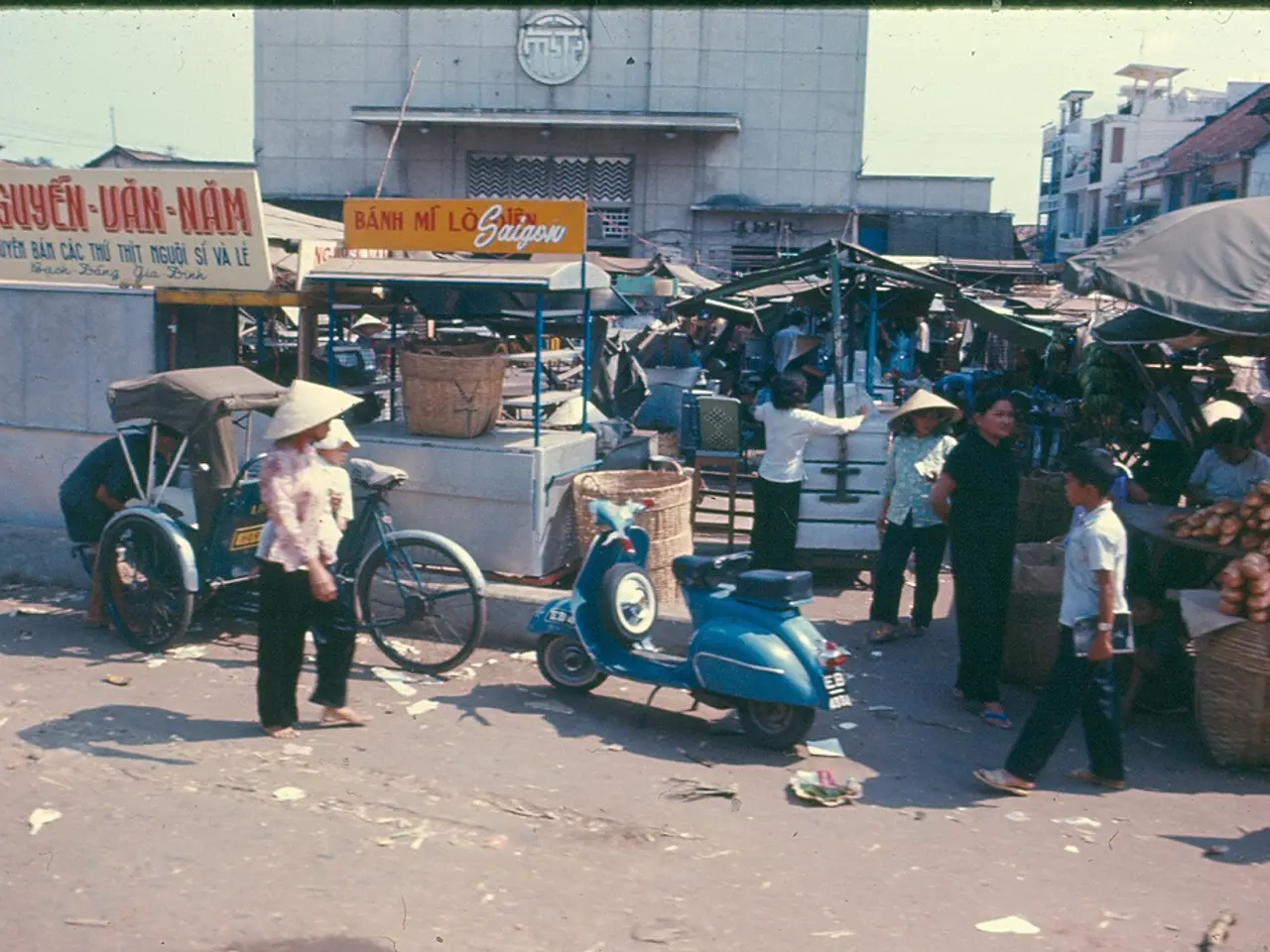Tourists in Copenhagen are incentivized for exemplary conduct, as Europe grapples with the challenges posed by excessive tourism.
Copenhagen, the capital of Denmark, has a unique programme called CopenPay that is sparking a global conversation on the impact of travel and making tourism contribute positively to both visitors and locals. The programme, a mindful tourism initiative, rewards tourists for eco-friendly and community-positive actions with tangible benefits such as free meals, museum admissions, and activity discounts.
Rikke Holm Petersen, the director of marketing for Wonderful Copenhagen, the city's official tourism organization, explained that CopenPay works by integrating with Copenhagen’s existing infrastructure, allowing tourists to use local public transport and participate in local initiatives alongside residents. This creates a collaborative environment where both tourists and locals work towards shared sustainability goals.
One of the goals of the CopenPay program is to inspire tourists to adopt sustainable practices such as biking more and choosing plant-based meals. Tourists earn these rewards by engaging in activities like using public transit, biking, participating in harbor and urban area cleanups, volunteering at urban farms, and even combining recreational experiences with sustainability—for example, cleaning canals while kayaking to get free kayak rentals.
The impact of CopenPay on tourists and locals has been positive. Although 82% of tourists express a desire to act sustainably, only 22% typically change behaviour. CopenPay narrows this gap by making green actions immediately rewarding, socially engaging, and easy to participate in. Unlike punitive or restrictive models seen in cities like Venice or Barcelona, Copenhagen's program celebrates and incentivizes responsible tourism behaviour, helping reduce overtourism tensions and fostering goodwill between visitors and the community.
The programme encourages tourists to try experiences not typically found in popular tourist destinations like Amsterdam or Madrid. For instance, taking public transport to visit the iconic CopenHill waste-to-energy plant can unlock special experiences. Tourists picking up trash in certain neighborhoods earn rewards that include free organic meals or cultural activities.
CopenPay's website (copenpay.com) provides a map and filter options for tourists to choose actions and find rewards. Rikke Holm Petersen expressed gratitude for the interview and hope that tourists would leave inspired and continue sustainable practices. If tourists participate in CopenPay and continue these practices at home, it could start a global movement for sustainable tourism.
The CopenPay rewards system was created to make collecting litter, biking, and taking public transportation fun and rewarding. In CopenPay, tourists pay for experiences by doing actions like biking, walking, or taking public transportation. The program had a 100% satisfaction rate among participants, and 98% of CopenPay participants would recommend the program to others.
In summary, CopenPay encourages and rewards sustainable tourism activities through a seamless, community-integrated platform, positively influencing tourist behaviour and supporting local environmental and social goals without resorting to restrictions or fees. Its success lies in transforming tourist actions into cultural and community currency, enhancing both visitor experience and city well-being.
- The CopenPay programme in Copenhagen, a mindful tourism initiative, not only rewards tourists for eco-friendly and community-positive actions but also allows them to participate in local environmental-science projects, such as urban farming and harbor cleanups, thereby promoting a sustainable lifestyle.
- The impact of CopenPay extends beyond Copenhagen as it encourages tourists to adopt sustainable practices like biking and consuming plant-based meals, transforming transportation and lifestyle choices into a global movement for sustainable tourism, even after returning home.




